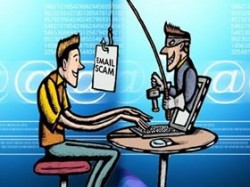How to Spot Fake Lotteries? Avoid Falling for Fake Lotteries and Scam Lottery Emails

How cool would it be to receive an email telling you that you have won a million dollars because of the lottery you played a while ago? Amazing, isn’t it? You cry tears of joy, distribute beers and treat your friends in high-class five star restaurant, you buy expensive gifts for your girlfriend, or you buy an expensive watch just to show off. What are you going to do with the rest of the money? Maybe buy a car, a condo, some designer wear, a musical set, ahh… there’s so much you can buy, the list is endless! Oh wait, I know what I’m going to do… delete the email. Wait, what?
Delete the Email – Learn to Spot Fake Lotteries
I, like you and a million others, have received a lot of these types of emails telling me that I’ve won not a million, but a billion dollars in a recent lottery. The first time I received that kind of email, I was thrilled, excited, shocked, numb, shaken, and all other nouns you can think of! I was happy and almost cried only to find out that it was nothing but a scam – a wicked lottery scam. A lot of people get bombarded with such dramatic and full of lies email on a daily basis.
Of course the content is not the same for all, some are creative with a bit of emotional blackmail while others tell you how you can convert your winnings to even bigger euros. It’s more common than you think. They’ve become so creative that each email subjects attractive headings like “Virtual Primary World” or “Europe Lottery International” – quoting names of perfectly respectable companies without feeling scared about doing so! They do this to convince you that the email is as real as it can get. So how can you spot fake lotteries? The signs are pretty clear, but for a lottery fanatic, the email can come as a huge shocker.
So, How to Spot Fake Lotteries?
- Check the email address that sent you the fake email, is it from an actual lottery company? If you’re not sure, take the bit after the @ sign and add “www.” in front of it and type it in the browser, hit enter and see what pops up. If it’s not an actual lottery company, it’s a bad sign.
- What is the grammar, spelling and punctuation like in the email? Fake lottery emails are usually poorly written by people who are not native English speakers. Bad sign again.
- What lottery do they claim you won? Have you participated in their claimed lottery? If not, it’s a bad sign because no company offers jackpots to people who don’t play their lottery!
- Where do you think the fake lotteries got your email address from? Have you participated in any online lotteries? Have you subscribed to any newsletters without knowing whether they’re fake or not?
- Are they asking you to pay a nominal fee to process your winnings? If they are, it’s definitely a scam because genuine lotteries won’t ask you for any fee to process your winnings.
- If you still aren’t sure, Google the name of the company and see if it is listed by others as fake lotteries. Search the particulars of the email you received and see if other people complained of the same thing. If you do see something, it’s a bad sign.
- Do they want your personal bank account details in order to send you your winnings? There are chances that they want your financial details so they can fraudulently empty your bank account!
- Do they have a phone number or a physical address listed in the email? If yes, try performing a reverse phone number search, and if it turns out to be a cell phone number, it’s a bad sign and the address will turn out to be an invalid business address.
If it’s too good to be true, then it’s too good to be true. If you find that the email is fake don’t open it, don’t download any attachment because it could be a virus that extracts all your personal details from your computer. If you play the lottery on a regular basis, you know exactly where you’re playing and how much you’re staking. If there are communications, it is between you and the company. You will never be notified from an unknown source about a lottery you play or played a while ago. Be safe and delete it immediately.